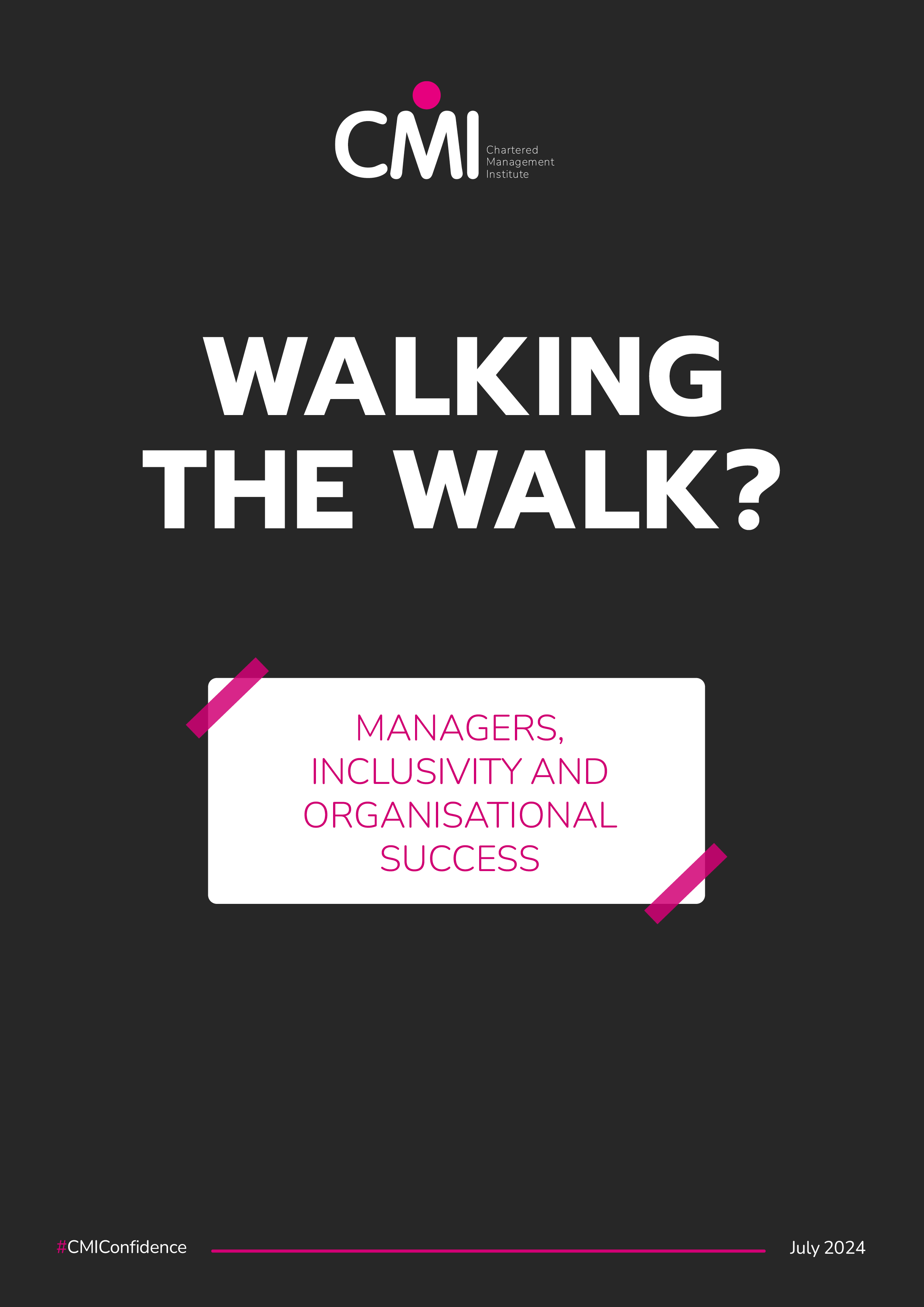Walking the Walk?
Managers, Inclusivity and Organisational Success
This report, 'Walking the Walk? Managers, Inclusivity and Organisational Success', has found that senior leaders at UK organisations have an "equality, diversity and inclusion (EDI) blindspot", with big gaps between what HR decision-makers think is working to improve inclusivity and workplace culture, versus how employees see it. This disconnect shows a missed opportunity to harness the full potential of a diverse workforce.

The Role of Trained Managers
Informed by the Everyone Economy Advisory Committee, led by Sir Trevor Phillips, this report surveyed over 500 HR decision-makers and 1,000 employees with no management responsibilities to better understand the current state of workplace inclusion and to gauge what was making a difference to organisational success.
We found that trained and supportive managers who know what they’re doing play a bigger role in creating inclusive workplaces than a host of popular initiatives, including a positive workplace culture, flexible working arrangements and specific diversity and inclusion programmes.
Key Recommendations
Leadership Teams
- Actively engage in and support your organisation’s inclusion strategy.
- Use data, model inclusive behaviour and provide manager training.
- Communicate and act swiftly against discrimination.
Managers
- Push for formal management training.
- Embrace new perspectives by committing to ongoing learning.
- Actively encourage feedback, creating positive ripple effects across the organisation.
Government
- Commit to a UK-wide management development strategy, recognising the role of trained managers and leaders in improving inclusivity, culture and organisational outcomes.
- Push for greater EDI accountability including through public sector procurement requirements.
